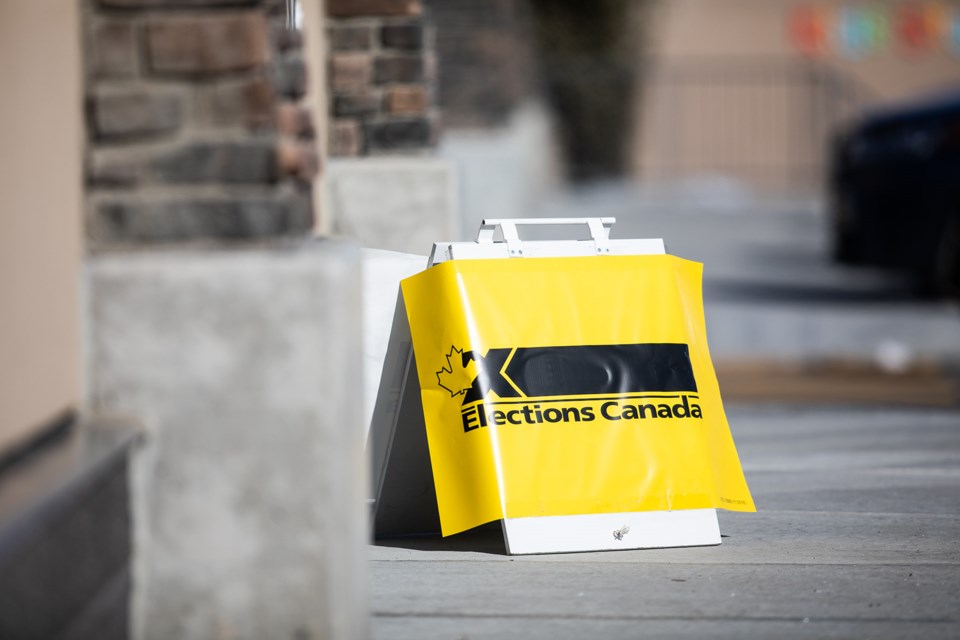THUNDER BAY – Elections Canada is reviewing complaints over a lack of Election Day voting in three Northwestern Ontario First Nations, as Kenora MP Eric Melillo weighed in to endorse an investigation.
In-person voting was offered in Pikangikum, Cat Lake, and Poplar Hill First Nations – all in the Kenora riding – on Sept. 13, but not on Election Day a week later.
Some community members have raised concerns on social media they were never made aware of the change, sharing photos of voter information cards that indicated voting would be available on Sept. 20.
A representative for Elections Canada said Friday the agency was “gathering information” on the issue.
“We understand that some electors in these communities were upset with the voting services offered and our communications around these voting options, and we thank them for coming forward with their experience,” said spokesperson Matthew McKenna in an email.
Another Elections Canada spokesperson said earlier in the week the date change was requested by the communities, since many members would be out hunting by Sept. 20. They suggested it would have required a written agreement.
“We know that an arrangement was made but now we are taking the time to review the facts and collect information from the various stakeholders involved - including community members and leadership, political parties, [and] the returning officer,” said McKenna.
Tania Cameron, who worked with the NDP as Indigenous get-out-the-vote coordinator during the election, has raised alarm bells over the issue. She said at least one chief was taken by surprise at the lack of Election Day voting, along with numerous members of the three First Nations.
“Not everyone hunts, so people remaining in the community were fully expecting to vote on Election Day,” she said. “I received messages from a number of individuals from these three communities who were just really upset they didn’t get a chance to vote.”
The chiefs of Pikangikum and Cat Lake First Nations could not immediately be reached for comment.
Kenora MP Eric Melillo, who was re-elected to a second term in the riding by a healthy margin, has addressed the controversy on social media, supporting calls for an investigation.
“I am very concerned about reports that voters in certain northern polls may have received incorrect voting information from Elections Canada,” he wrote.
On Friday, the Conservative MP said he hadn’t yet spoken with Elections Canada or leaders from the First Nations, but had received concerns about disorganized polling stations in First Nations, and seen complaints on social media.
Those include reports of poll workers arriving several hours late in Grassy Narrows First Nation, and denying a request to extend voting hours.
“Obviously there are some gaps that occurred and it wasn’t executed properly, I think that’s evident based on the reports we’re seeing,” Melillo said. “I don’t think I can say this enough, it shows why we need to have the review and a transparent understanding of what went wrong.”
Cameron plans to outline her concerns formally, noting she was doing so on her own initiative, not on behalf of the NDP.
“Right now what I’m working on is an official letter of complaint,” she said. “I’m going to highlight my day on Election Day – conversations that I had with two chiefs and individuals who were having problems trying to vote.”
She said the total number of eligible electors in the three communities was around 1,600 in 2019, and would likely be closer to 2,000 now.
Melillo was re-elected handily with 42.6 per cent of the vote, with a margin of 3,301 votes separating him from his nearest challenger, the NDP’s Janine Seymour.
“Even if it doesn’t change the official results, the principle of it remains,” Cameron said. “First Nations communities only got the right to vote in 1960. For me, to know that there were three communities denied that right… it’s insulting.”
